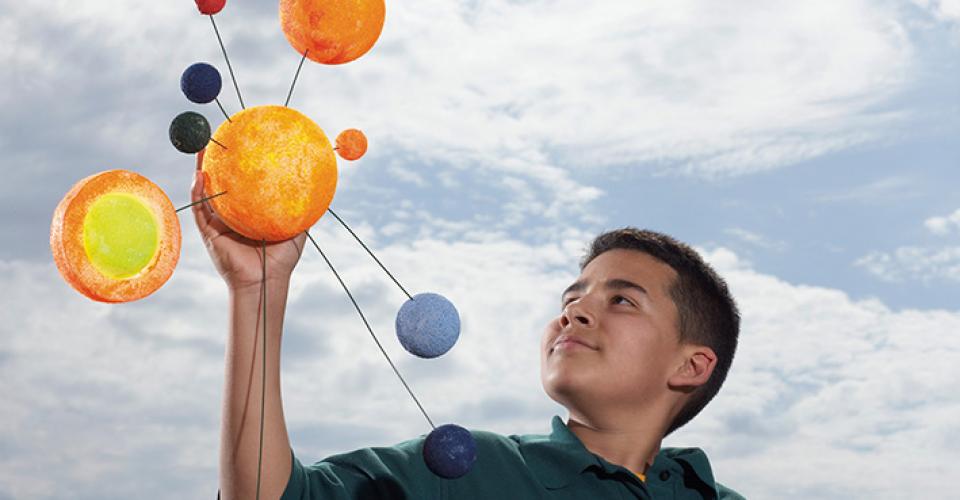I’m not getting b(l)ogged down
29/05/2014Chemistry teacher MATT NICOLL explains how blogging has changed the way he teaches.
Arrogantly, I think I have some pretty good ideas when it comes to education. I also love reading about others’ ideas and trying out new things. I am also humble enough to honestly reflect on my own practice and ideas. Purely by trial and error, I have found blogging to be a manageable and worthwhile avenue in this way. In addition, I have also found blogging to be an effective way to build a collective record of my lessons for (and sometimes with) my students.

One of the Registered Teacher Criteria specified by the New Zealand Teacher Council is to “demonstrate commitment to ongoing professional learning and development of personal professional practice.” In the past, I have struggled to provide evidence that I feel genuinely demonstrates this commitment; I have never faltered in this commitment, but where is the proof?
In 2012, I made a deliberate decision to keep an online record of my ideas and current practices. I chose to use blogs for two main reasons: being in the public domain, there was a good chance that I would get feedback and suggestions from others, not just my direct colleagues; and I could add to my professional learning record whenever I wanted to, not relying on transferring my notes and commentaries into a professional learning folder kept in my office, for example.
The main positive spin-off of this decision has been that others have found use in what I share, and it has helped build some strong connections with other like-minded educators. Another real “win” with blogging has been that I tend to revise my posts more regularly than I ever reviewed my professional learning folders in the past. The last of the unexpected positives is that writing these reflections seems more meaningful, so feels less like work than it used to. Knowing others read what I am writing, and sometimes comment or find use in it, has made me more motivated to reflect more often.
In effect, blogging has been one way that I have built a network of critical and respected peers, inadvertently satisfying another of the Registered Teacher Criteria: “use critical inquiry and problem-solving effectively in their professional practice.” While I am not blogging to “tick the boxes”, it definitely makes Appraisal and Attestation less onerous.
Getting students involved
From maintaining a professional reflection blog, I became very comfortable with blogging as a platform for collaboration, and saw a lot of benefits from it. The next step was to facilitate using blogs to keep a collaborative set of “notes” with my classes. My original goal was for the students to maintain their own respective class blogs, having filmed me teaching, filmed the experiments, and photographed the work on the whiteboard. In reality, this was highly unsuccessful.
The students who were trying to create the blog posts in each lesson were not able to also complete the student-centred tasks in class. I even tried excusing the “bloggers” from doing the homework to accommodate this, but it did not make enough of a difference. The blog posts were of a poor quality and often needed editing or correcting by me. The students were missing out on the face-to-face collaborative tasks in class. I expected the bloggers would know the content that related to their post “inside-out” but they did not.
In response to the difficulties we experienced, I changed my “recipe”. I got the teacher-centred part of the lesson done at the very beginning of the lesson. We already had a routine of filming this, so persisted with this idea. Then the students were set tasks of varying difficulty and often including an experiment. While they worked, so did I. The videos were uploaded to YouTube and the blog post started (by me). While the video was uploading, I worked with my students on their set tasks. Once I was happy that they were engaged, I returned to the blog and finished that.
Now, my students do not “waste” time copying notes. Now, my students can review a video of me teaching them key concepts and answering their questions. Now, students have ubiquitous access to content and key ideas, even when they miss a lesson. Blogging is not the only way that I could achieve these things, but I have found it easy and it complements what I already do for my own professional development.
Other online tools
I do use other online tools to assist in my professional development. For my professional learning, I contribute via Twitter every second Thursday. A group of educators use the #edchatNZ hashtag to discuss a predetermined topic, generally centred on 21st century learning pedagogy and initiatives. I also read others’ blogs and websites linked to me via Twitter.
My students have even more at their disposal. We are huge fans of Khan Academy and my chemistry classes are starting to access Socratic (for which I am now a contributor). Our Olympiad Chemistry students are given access to BestChoice. Then, they also collaborate via Facebook, and find a lot of great content in YouTube, particularly Minute Physics.
Blogging is not the “be all and end all” but it is something I can manage and it seems to have tangible benefits for both myself and my students. Conveniently, it does not add dramatically to my workload, which makes me even more inclined to persevere with it, even when it doesn’t always go to plan.
The most satisfying feedback regarding the filming of my teaching and the subsequent blogging came during Year 9 parent-teacher interviews last year. A parent who happened to be a qualified teacher told me that this support made the difference for her son in learning science. She marvelled that it was not already “best practice” with teachers. Wouldn’t that be nice?
My blogs
- Professional Development: http://classroommatt.blogspot.co.nz/
- 2013 Year 9 Science: http://9ascience2013.blogspot.co.nz/
- 2013 Year 11 Science: http://l1science2013.blogspot.co.nz/
- 2013 Year 12 Chemistry: http://l2chem2013.blogspot.co.nz/
- 2013 Year 12 Chemistry: http://l3chem2013.blogspot.co.nz/
- 2014 Year 9 Science: http://9ascience2014.blogspot.co.nz/
- 2014 Year 12 Chemistry: http://level2chemistry2014.blogspot.co.nz/
- 2014 Year 13 Chemistry: http://level3chemistry2014.blogspot.co.nz/
Matt Nicoll teaches science at Saint Andrew’s College in Christchurch.

























Post your comment
Comments
Thanks for this great information. I totally agree with your perspective. Your articles made me want to read more.
Posted by stanley, 24/06/2015 12:11am (9 years ago)
Thanks for this. I think that this is a great way to keep track of what you are doing. What I really like is your willingness to share with others.Think that I might now have the impetus to try this myself. Look out I'm about to stand on your shoulders!
Posted by Susan, 03/09/2014 7:19pm (10 years ago)
Hi Matt, So cool to see you in cyberspace and this post which was shared with me via an ex Teacher at Makauri. I was interested in your blog being part of your professional learning and evidence towards the RTCs. You are doing some amazing 21century teaching and learning and have given me some ideas for my own staff. Thanks. Hope all is well in your world.
Posted by Judy Nicoll, 24/06/2014 7:36pm (10 years ago)
Great article Matt! I've recently got into blogging for the same reasons. Loved your ideas around filming and uploading your lessons for your students. It got me thinking about doing something similar, but with primary school programmes, like Reading Together, to support parents reading with their kids at home.
Posted by Emma, 24/06/2014 6:30pm (10 years ago)
No one has commented on this page yet.
RSS feed for comments on this page | RSS feed for all comments